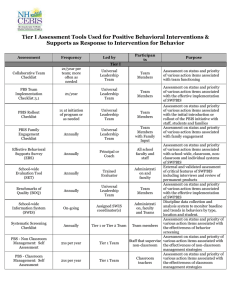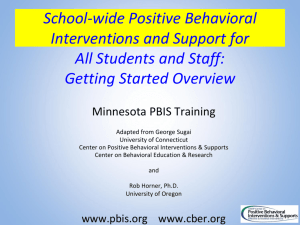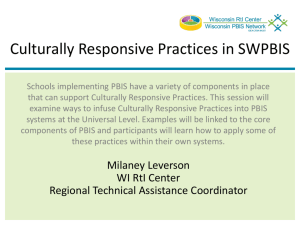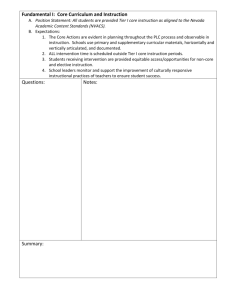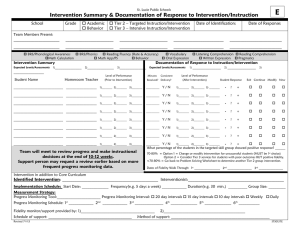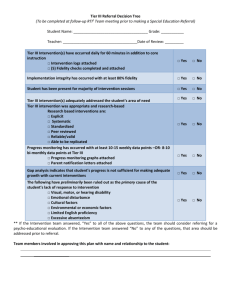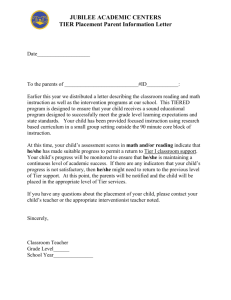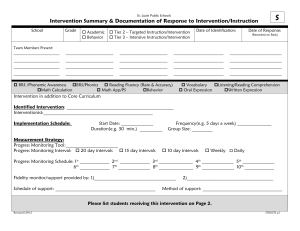Indicators of Tier I Universal Schoolwide Positive Behavioral Interventions
advertisement
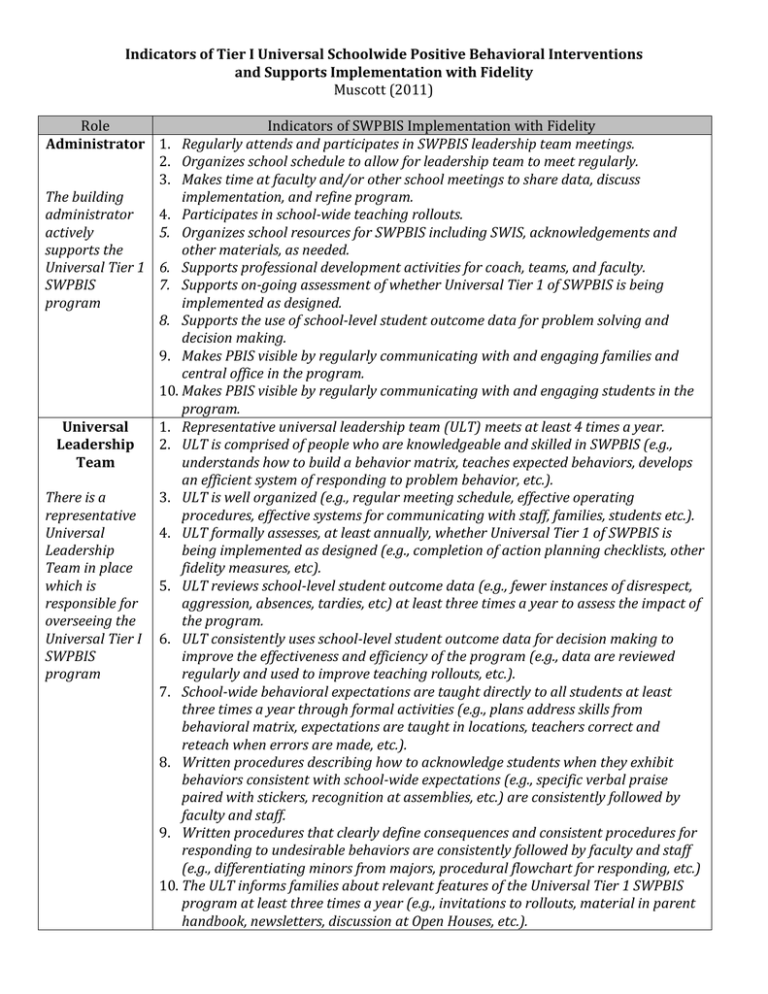
Indicators of Tier I Universal Schoolwide Positive Behavioral Interventions and Supports Implementation with Fidelity Muscott (2011) Role Administrator 1. 2. 3. The building administrator 4. actively 5. supports the Universal Tier 1 6. SWPBIS 7. program 8. Universal Leadership Team There is a representative Universal Leadership Team in place which is responsible for overseeing the Universal Tier I SWPBIS program Indicators of SWPBIS Implementation with Fidelity Regularly attends and participates in SWPBIS leadership team meetings. Organizes school schedule to allow for leadership team to meet regularly. Makes time at faculty and/or other school meetings to share data, discuss implementation, and refine program. Participates in school-wide teaching rollouts. Organizes school resources for SWPBIS including SWIS, acknowledgements and other materials, as needed. Supports professional development activities for coach, teams, and faculty. Supports on-going assessment of whether Universal Tier 1 of SWPBIS is being implemented as designed. Supports the use of school-level student outcome data for problem solving and decision making. 9. Makes PBIS visible by regularly communicating with and engaging families and central office in the program. 10. Makes PBIS visible by regularly communicating with and engaging students in the program. 1. Representative universal leadership team (ULT) meets at least 4 times a year. 2. ULT is comprised of people who are knowledgeable and skilled in SWPBIS (e.g., understands how to build a behavior matrix, teaches expected behaviors, develops an efficient system of responding to problem behavior, etc.). 3. ULT is well organized (e.g., regular meeting schedule, effective operating procedures, effective systems for communicating with staff, families, students etc.). 4. ULT formally assesses, at least annually, whether Universal Tier 1 of SWPBIS is being implemented as designed (e.g., completion of action planning checklists, other fidelity measures, etc). 5. ULT reviews school-level student outcome data (e.g., fewer instances of disrespect, aggression, absences, tardies, etc) at least three times a year to assess the impact of the program. 6. ULT consistently uses school-level student outcome data for decision making to improve the effectiveness and efficiency of the program (e.g., data are reviewed regularly and used to improve teaching rollouts, etc.). 7. School-wide behavioral expectations are taught directly to all students at least three times a year through formal activities (e.g., plans address skills from behavioral matrix, expectations are taught in locations, teachers correct and reteach when errors are made, etc.). 8. Written procedures describing how to acknowledge students when they exhibit behaviors consistent with school-wide expectations (e.g., specific verbal praise paired with stickers, recognition at assemblies, etc.) are consistently followed by faculty and staff. 9. Written procedures that clearly define consequences and consistent procedures for responding to undesirable behaviors are consistently followed by faculty and staff (e.g., differentiating minors from majors, procedural flowchart for responding, etc.) 10. The ULT informs families about relevant features of the Universal Tier 1 SWPBIS program at least three times a year (e.g., invitations to rollouts, material in parent handbook, newsletters, discussion at Open Houses, etc.).
